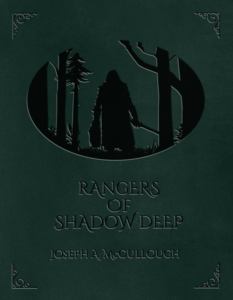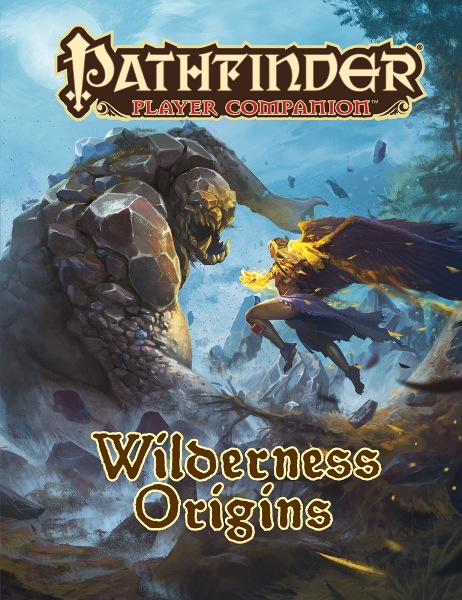
Rangers of Shadow Deep
Rangers of Shadow Deep is an epic fantasy miniatures wargame, written by Joseph A. McCullogh and published by Modiphius Entertainment.
By Aaron T. Huss

Purchase Rangers of Shadow Deep here (paid link)
Find other Rangers of Shadow Deep posts here
Rangers of Shadow Deep is a cooperative miniatures game that sits about halfway between tabletop role-playing game and miniatures wargame. The game solely consists of tabletop adventures played out through miniatures within a predefined set-up, but the characters work together to resolve the conflict, find clues, decipher objects, etc. Conflict resolution is done via a single d20 roll either against a target number or against an opposing character. Additional randomness is added to the game through the use of playing cards that define when certain events occur based on the card drawn. Each character is mechanically represented through fairly standard wargame stats and then augmented by RPG-like skills, abilities, and spells. Unfortunately the game is not 100% scalable, but it instead allows you to use companions to round out your party to compensate (kind of like the D&D MMORPGs). There is no GM, so all players take on the roll of a player character while the opposition follows predefined movement and engagement. As the players are all working off the same scenario rules, the period between scenarios is simply narrated by the scenario itself and not further gameplay is required.
The first time I read through Rangers of Shadow Deep (RoSD), I will admit that I didn’t quite get it. I read through it a second time and everything started to click into place. It kind of reminds me of a board game, but with a more dynamic map and miniatures that don’t follow a grid. I also realized how simplistic the conflict resolution is and how much fun it would be to throw dice and move painted miniatures around the map. At its core, RoSD is very generic; the epic fantasy theme is really a thematic overlay. Its mechanics could easily be used for other genres with little to no changes required. It may not work quite as well for sci-fi, but slight modifications could easily be made to compensate for weapons, armor, and range. Not that the rules are available for use outside of the game.
There are a couple drawbacks I can see for a game where everything is dictated by the scenario and not a GM. First, many of the scenarios have what I am going to call objectives that act as either freebies to make the scenario interesting or could be used to drive some type of backstory (not that they have to on that last one). If everyone knows where they’re located, it takes a bit of the mystery away compared to when a GM keeps that information secret. You know, searching a room to discover what’s hidden throughout. You also already know what’s on the battlefield; there are seemingly no surprises unless the scenario dictate it (and even then, the players have access to that information). This is not a fault of the game, not even close, it is simply a personal observation that I would hack.
It will be interesting to see what Modiphius does with RoSD. There are already campaigns available, but maybe they’ll take the game in interesting new directions! Or maybe they’ll just let everyone have fun with what’s available and concentrate more on the accessories (terrain, maps, miniatures, etc.). Regardless, I like it and encourage everyone to give it a second chance if you didn’t quite understand it the first time.


